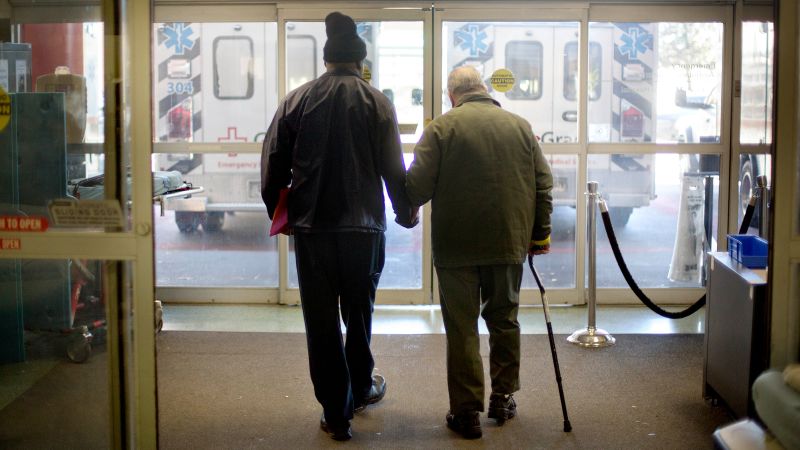Months after thekilling of a top health insurance executiveunleashed Americans’ pent-up anger over denials of medical care, the industry announced Monday that it will take action to “streamline, simplify and reduce” the preapproval process.
Dozens of health insurers covering 257 million people committed to six steps to make it easier for patients to get appropriate care, according to a news release from the industry’s two major trade groups, the Blue Cross Blue Shield Association and AHIP, formerly known as America’s Health Insurance Plans. The measures apply to those with commercial, Medicare Advantage and Medicaid-managed care coverage.
“For patients, these commitments will result in faster, more direct access to appropriate treatments and medical services with fewer challenges navigating the health system,” the release said. “For providers, these commitments will streamline prior authorization workflows, allowing for a more efficient and transparent process overall, while ensuring evidence-based care for their patients.”
The announcement comes a little over six months afterUnitedHealthcare CEO Brian Thompsonwas fatally shot in New York City, sparking aflurry of rage and frustrationabout care denials and delays from social media users. Luigi Mangione, whovented his angerwith the health insurance industry in diary entries before Thompson’s death, is facing charges in two states and federal court in connection with the killing. He has pleaded not guilty.
The preapproval process, also known as prior authorization, has long been a major headache for many patients. It’s not uncommon for Americans and their doctors to jump through multiple hoops to get approval for the care that doctors say their patients need or to combat denials from carriers.
The industry considers prior authorization an important safeguard to make sure their policyholders’ care is safe, appropriate and affordable. But critics say it’s a way for insurers to increase their profits by denying care.
The participating health insurers have promised to work toward a common electronic prior authorization process, which they say will help speed the decision timeline. The goal is for the new framework to be in place by January 1, 2027.
Also, the insurers have agreed to reduce the scope of claims subject to preapproval by the start of next year, as well as ensure that plans honor existing prior authorizations for 90 days for patients who change carriers during treatment.
Insurers say they will provide clear explanations of their determinations, including information about appeals. These changes will be in place for those with commercial coverage by January, and the industry will work with regulators to expand this step to other coverage types.
Plus, insurers will expand the share of electronic prior authorization approvals answered in real time to at least 80% in 2027, if all needed clinical documentation is submitted. And all requests that are denied will continue to be reviewed by medical professionals, which is the current standard.
Insurers that have signed onto the commitment include many of the nation’s largest carriers, including UnitedHealthcare, CVS Health’s Aetna, Cigna, Humana, Elevance Health (formerly Anthem), Kaiser Permanente and dozens of Blue Cross Blue Shield plans.
Several insurers have already promised to change their practices. UnitedHealthcare, for instance, said in January that it would work to use technology and standardization to speed the preapproval process for Medicare Advantage patients and to reduce number of prior authorizations needed for certain Medicare Advantage services.
The following month, Cigna said it would create concierge teams to help patients who are experiencing challenges with prior authorization or claims payments, as well as provide doctors with an easier way to submit all the needed info.
US Health and Human Services Secretary Robert F. Kennedy Jr. and Dr. Mehmet Oz, Centers for Medicare and Medicaid Services administrator, are expected to discuss the initiative in a news conference on Monday, theWall Street Journal reportedlate last week.
The efforts are first steps to improving the prior authorization process, but more needs to be done, experts told CNN.
The commitments to standardize and streamline preapprovals, as well as provide real-time decisions, should benefit patients, said Anthony Wright, executive director of Families USA, a consumer advocacy group.
However, more can be done, he said. For instance, if certain care is denied, appealing the decision should be part of the system and not be the patient’s burden.
“There’s enough of a lack of trust, there’s enough real, palpable frustration among patients and providers that there needs to be a policy response, not just industry voluntary guidelines,” he said, noting that Congress should write the protections into law.
Standardizing the electronic prior authorization process for those with commercial insurance and supporting appeals are important, but it’s unclear how some of the measures will differ from what insurers have already promised to do, said Kaye Pestaina, director of the program on patient and consumer protections at KFF, a health policy research group.
Also, last year, CMS finalized a rule that focused on streamlining the preapproval process and increasing transparency for those with Medicare Advantage plans, Affordable Care Act policies bought on the federal exchange and Medicaid managed care coverage, she noted.
“It is too early to say” whether the industry’s voluntary commitments will help, Pestaina said. “There’s not much transparency here as to what is going to change for consumers.”
Improving the appeals process would be beneficial since few patients attempt to fight care denials. In Medicare Advantage, fewer than 12% of denied prior authorization requests were appealed in 2023, according to aKFF analysisof CMS data. But nearly 82% of appeals resulted in the denials being partially or fully reversed.
“Those who do appeal a denial often get that overturned,” she said. “Connecting folks to that appeal process – however that is – is a positive.”
CNN’s Sarah Owermohle contributed to this report.
